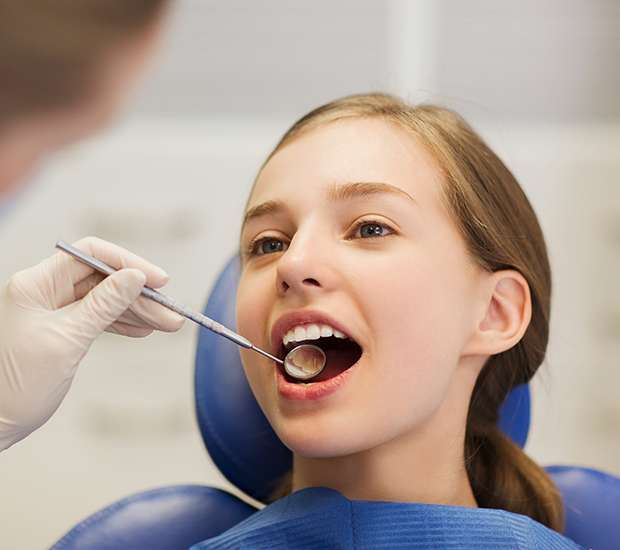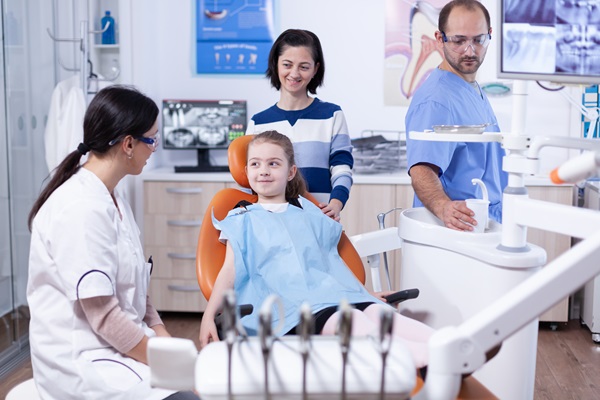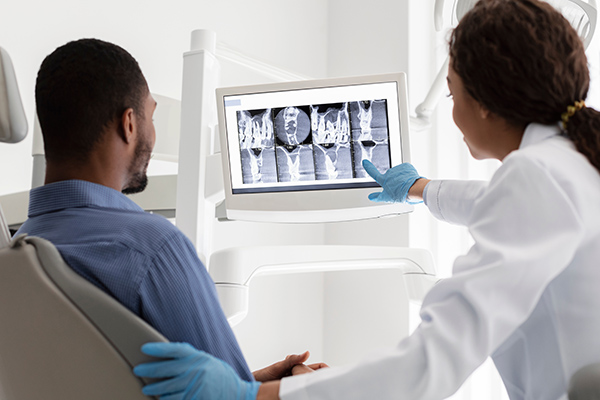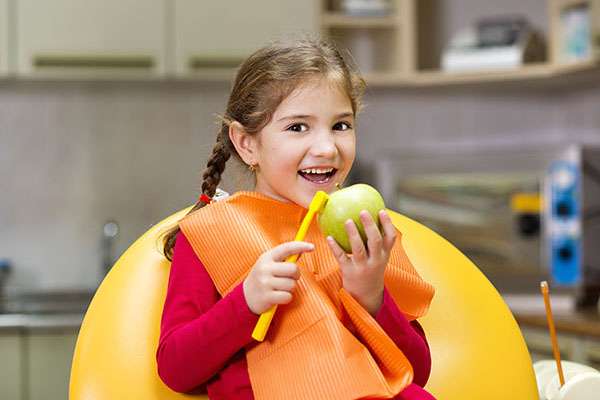Why go to a Pediatric Dentist Instead of a General Dentist Temecula, CA
The difference between a pediatric dentist and a general dentist is more than just a title. Pediatric dentists receive additional training to make them uniquely qualified to specialize in treating children. Taking your child to a pediatric dentist can help set them up for good oral hygiene for the rest of their lives.
Pediatric dentistry is available at Vineyard Valley Dental in Temecula and the surrounding area. Set your child up for a lifetime of oral health and have them get a great first impression of dentistry. Call us today at (951) 707-4378 to schedule an appointment or learn more about our services.
Ages Treated by a Pediatric Dentist
According to MouthHealthy, a pediatric dentist is a dentist focused on the oral health of children. Their training allows them to treat children starting from infancy and all the way up through their teen years.
Baby teeth typically begin erupting during a child's first six months of life. By the time a child turns six or seven years old, they will begin to lose their first set of teeth and have their permanent teeth come in.
Without the proper, specialized treatment they need, young children are more likely to suffer oral decay and disease — which can have lifelong effects and complications. As such, it is imperative for parents to take their children to a dentist who focuses on children's specific needs and anatomy.
“… a pediatric dentist is a dentist focused on the oral health of children.”
Getting a Good First Impression of the Dentist
On top of being uniquely qualified to treat children's teeth, gums, and mouth, pediatric dentists also understand how to make children feel comfortable in the dentist's office. They understand that a happy child is a happy patient — while a general dentist may simply be focused on completing the procedure.
A pediatric dentist's office, on the other hand, is tailored specifically towards children. There are often books, toys, and other fun distractions that will cause the child to associate the dentist with positive interactions and play. This first impression can leave the child with positive associations with oral health that will follow them into adulthood.
“A pediatric dentist’s office […] is tailored specifically towards children.”
Differences in Training
Pediatric dentists are not just dentists who chose to work with kids — they are dentists who have been trained specifically to be prepared for kids. In addition to completing four years of dental school, pediatric dentists must complete a two-year residency training program in dentistry for infants, children, teens, and children with special needs.
General dentists, in contrast, do not complete any such residency. While they can treat children, they do not have the same expertise, experience, or training as pediatric dentists. Additionally, they are generally more well-acquainted with adult oral anatomy. In short, while general dentists are capable, they lack the comprehensive and in-depth knowledge of pediatric dentists — and the experience necessary to treat any possible behavioral needs.
“In addition to completing four years of dental school, pediatric dentists must complete a two-year residency training program in dentistry for infants, children, teens, and children with special needs.”
Check out what others are saying about our dental services on Yelp: Why go to a Pediatric Dentist Instead of a General Dentist in Temecula, CA
Tools Designed for Children
Perhaps unsurprisingly, pediatric dentists also have different tools at their disposal. While adult-sized dental tools may technically work in a child's mouth, they were not made with children's needs in mind. Since the anatomy of a child's mouth is different from an adult's, children require different dental tools.
Luckily, pediatric dentists have smaller dental tools to make dental exams, cleanings, and treatment generally less uncomfortable and more enjoyable. This is also another part of ensuring that children have a good impression of the dentist, making it less intimidating for them to maintain their oral health.
“While adult-sized dental tools may technically work in a child’s mouth, they were not made with children’s needs in mind.”
Enthusiasm About Treatment
Unlike general dentists, pediatric dentists became dentists specifically to work with children. They are enthusiastic about treating this particular population, and, from day one of their residencies, are in constant contact with them. In other words, they are continually being "trained" to improve.
With each patient visit, pediatric dentists must apply positive reinforcement and "tell-show-do" (in which they explain the procedure to the child in understandable language, show them a simplified version of the treatment, and perform the procedure) — all in a soothing tone meant to calm both the child and parent.
“Unlike general dentists, pediatric dentists became dentists specifically to work with children.”
Questions Answered on This Page
Q. What ages should only be seen by a pediatric dentist?
Q. How does a pediatric dentist create a positive association with oral health?
Q. How much training does a pediatric dentist need to undergo?
Q. Do pediatric dentists use different tools?
Q. Does it really matter that pediatric dentists work with children every day?
People Also Ask
Q. What makes a kid friendly dentist unique?
Frequently Asked Questions
Q. When should I take my child to the dentist for their first dental check-up?
A. A child's first dental appointment is more about taking preventive measures and getting them accustomed to the dentist's office. The American Academy of Pediatric Dentistry recommends taking your child to the dentist as soon as their first tooth appears or no later than their first birthday — whichever comes first.
Q. Are baby teeth actually important?
A. Yes, and they should not be neglected. Your child's baby teeth help them speak clearly and chew naturally. They also act as placeholders for the permanent teeth. As such, anything that disrupts the baby teeth has the potential to disrupt the growth of the permanent teeth.
Q. How should I clean my baby's teeth?
A. Use a toothbrush with soft bristles and a small head. Brush at least once a day before bedtime to remove any decay-causing plaque.
Q. How can I prevent baby bottle tooth decay?
A. Baby bottle tooth decay is a condition in which a child experiences a pattern of rapid decay due to prolonged nursing. It occurs when the child falls asleep while feeding. Parents can help prevent baby bottle tooth decay by avoiding nursing children to sleep or putting liquids other than water in their bedtime bottle.
Q. What are dental sealants?
A. Dental sealants are thin coatings painted onto the chewing surfaces of the molars to prevent tooth decay. By covering the chewing surfaces with a protective shield, dental sealants block out any germs and food that could cause cavities.
Quality Dental Services Can Transform Your Smile
By visiting us as soon as possible, our team can help get you the professional treatment you need. Instead of waiting around and allowing the symptoms to get worse, we can provide you with treatment options.
Family Dental Terminology
Call Us Today
Pediatric dentistry does not have to be intimidating. We at Vineyard Valley Dental can help. Call us today at 951-707-4378 to schedule an appointment or learn more about our services.
Helpful Related Links
- American Dental Association (ADA). Glossary of Dental Clinical Terms. 2021
- American Academy of Cosmetic Dentistry® (AACD). Home Page. 2021
- WebMD. WebMD’s Oral Care Guide. 2021
About our business and website security
- Vineyard Valley Dental was established in 2002.
- We accept the following payment methods: American Express, Cash, Discover, MasterCard, and Visa
- We serve patients from the following counties: Riverside County
- We serve patients from the following cities: Temecula, Murrieta, French Valley, Lake Elsinore, Fallbrook, Winchester, Hemet and Menifee
- Norton Safe Web. View Details
- Trend Micro Site Safety Center. View Details








